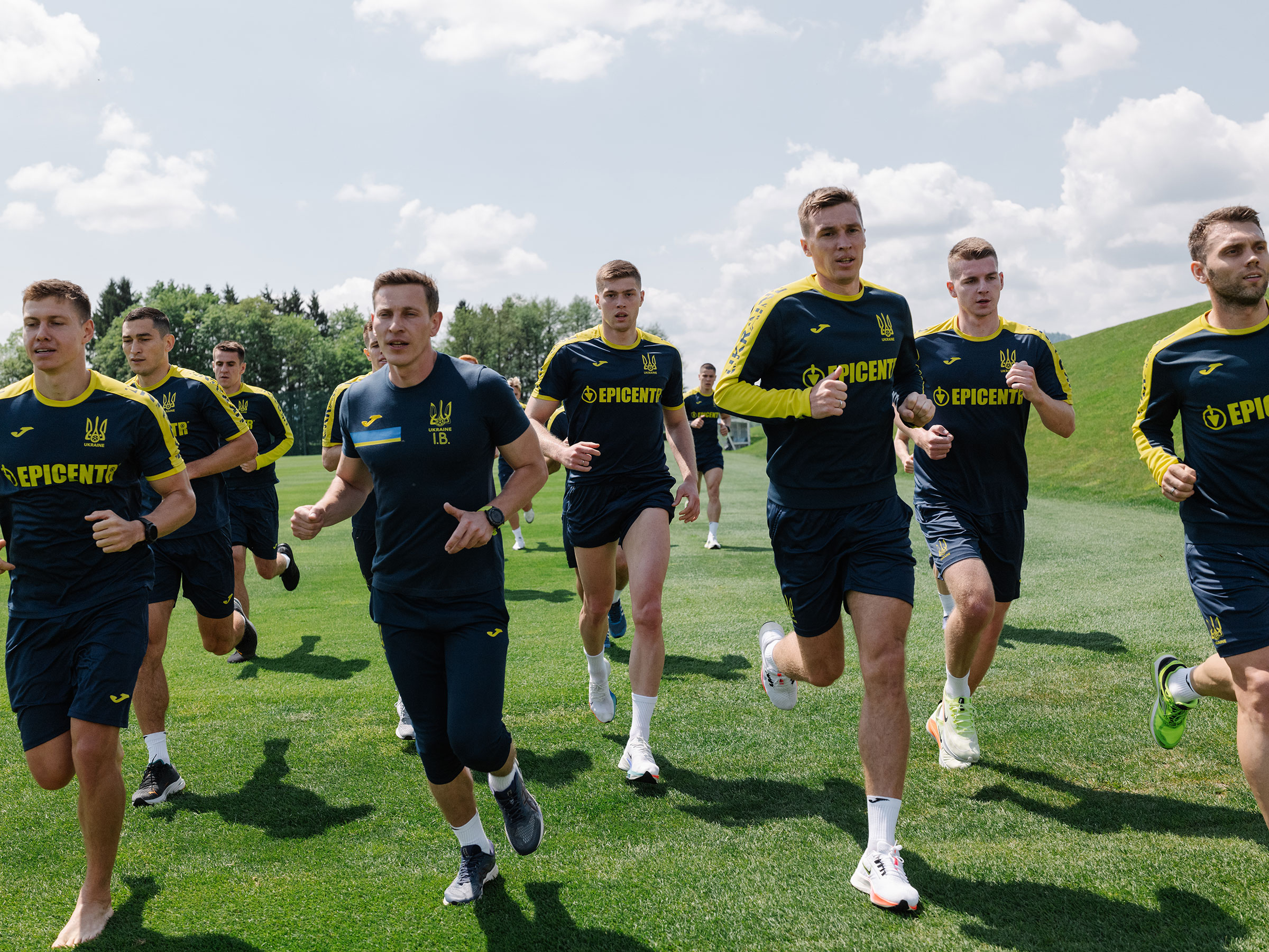“There is no anger, only hate,” says Oleksandr Petrakov, the head coach for Ukraine’s men’s national soccer team, of his feelings toward the Russians who have laid waste to his homeland. We’re sitting in Petrakov’s bedroom cum office at a luxury resort perched beneath the Slovenian Alps. The coffee table is strewn with stopwatches and tactical notebooks. It’s here that the steely-eyed 64-year-old has ensconced his young charges at a training camp to prepare for battle.
They won’t be picking up guns, of course, although that was Petrakov’s first instinct when the rockets started falling around his home in Kyiv on Feb. 24. He marched straight to enlist with Ukraine’s Territorial Defense Force, intent on fending off the invaders, but was turned away. “It would be wrong if I ran from my city where I was born,” he says, shrugging. “But they said ‘You are too old and don’t have any military skills. Instead, you better bring us to the World Cup.’”
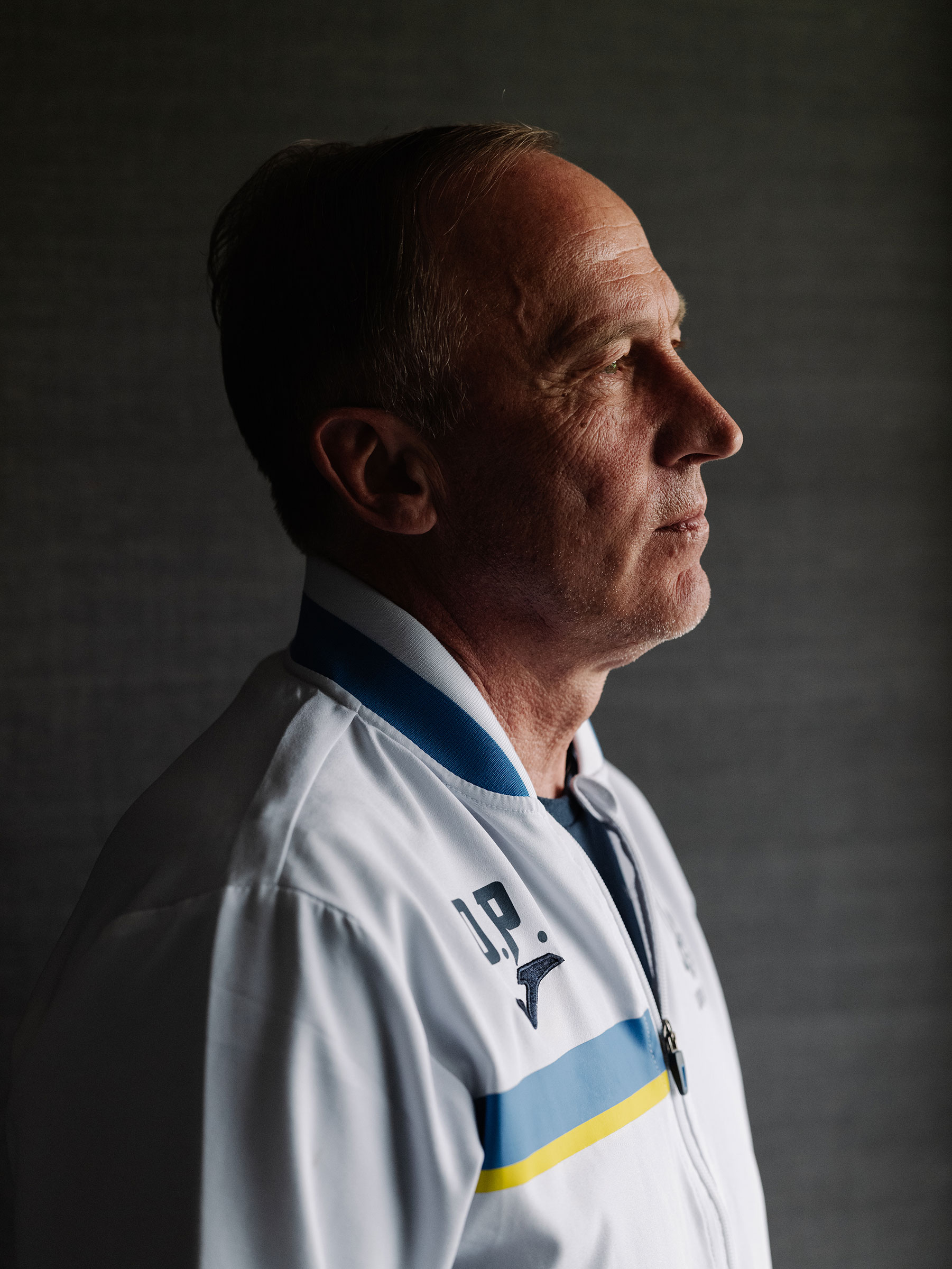
It’s a mission that Petrakov accepted with a grave fervor. As hundreds of thousands of Ukrainians have taken up arms to fight the invading forces of Vladimir Putin, his players have been assigned a solemn duty: to raise their nation’s morale, earn cash for the Ukrainian military through charity matches overseas, and, most important of all, reassert the country’s disputed sovereignty by booking an unlikely place at November’s FIFA World Cup in Qatar. To achieve that, they need to defeat Scotland in a playoff game in Glasgow on June 1 and then Wales in Cardiff four days later.
Read More: Ukraine Is in Worse Shape Than You Think
“It’s a very big responsibility,” Petrakov says. “I feel it more as the [Scotland] game approaches. Many of our fans are soldiers in the Ukrainian army.”
The weight of expectations hangs heavy over the group. Professional soccer players are usually notorious for their pampered lifestyles, for their personalized boot deals, and fawning fans. But none of the 21 players currently in Slovenia is unaffected by Russia’s invasion—and a singularity of purpose permeates all aspects of life here. Daily conversations revolve not around celebrity girlfriends and nights out but how best to ship home medical supplies and heartfelt messages from troops on the frontline.
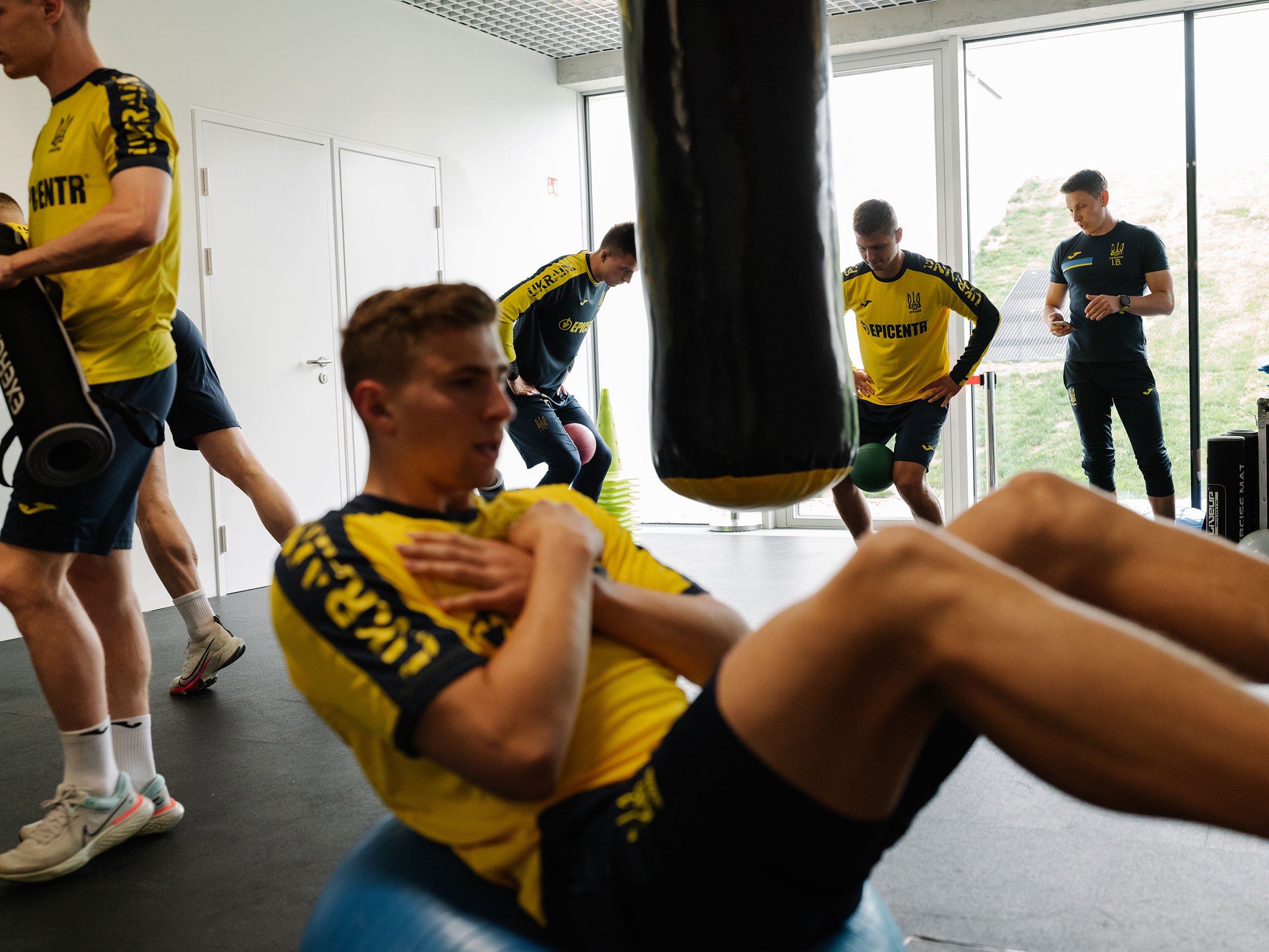
Petrakov took over as head coach last August, replacing former AC Milan striker Andriy Shevchenko, a prolific scorer regarded as Ukraine’s greatest player ever. Although Petrakov lacks top-level club experience, he spent much of his coaching career training Ukrainian youth teams, winning the under-20 World Cup in 2019.
It was that success that attracted the attention of some Major League Soccer teams, although Petrakov says he turned them down fearing his English wasn’t up to the task. And while he may lack the star billing of his predecessor, Petrakov has the advantage of having worked with the current Ukraine squad for many years through the youth ranks. Even as adults in their 20s and 30s, they show him respect like that of a revered school master. “They will do whatever he asks of them,” says one assistant coach, standing on the sidelines of the training pitch in Slovenia.
Many of the 21 Ukrainian players here considered joining the army, but ultimately decided they were of more help to the war effort on the pitch. And the scene here in Slovenia—where the lush training pitch is flanked by wildflower meadows and ornamental lakes, with faraway church bells and horses neighing in the distance—couldn’t be further from the devastation in Ukraine today. That dissonance can be painful to grapple with.
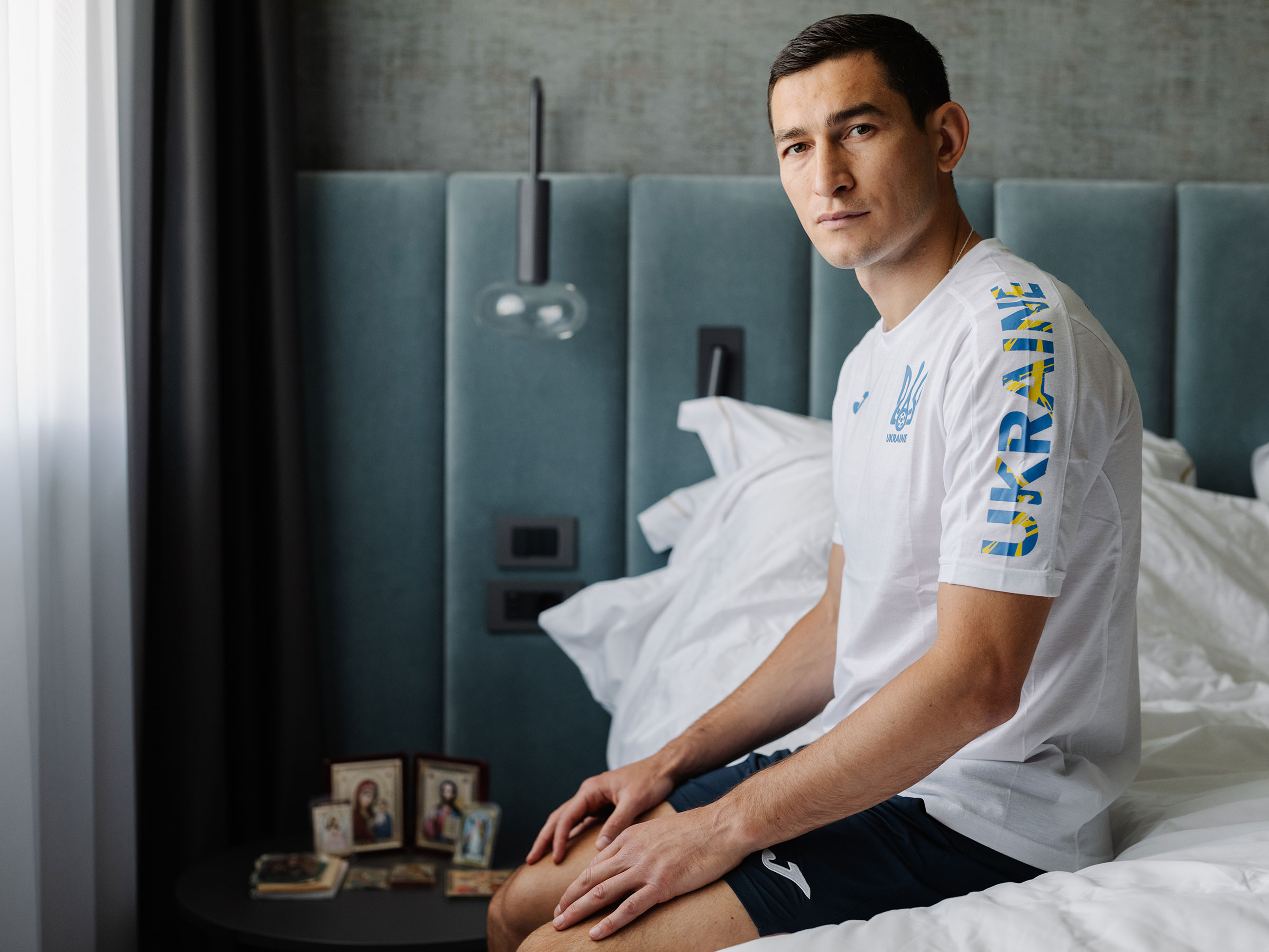
When the war broke out, midfielder Taras Stepanenko rushed his wife and three sons—ages 4, 6, and 8—down to his house’s basement in Kyiv and stayed there for three days, ears trained on the shells raining nearby. The 32-year-old was initially reluctant to leave home, believing that a negotiated settlement might arrive at any moment.
But as the conflict escalated, he decided to follow his neighbors to the relative safety of the southwestern city of Chernivtsi—only for a Russian rocket to obliterate a building on their route just 20 minutes after they drove past. The thought of it still makes him shudder. “There were missiles every day,” he says. “I just had to tell my sons not to worry, it’s some far off place, everything will be OK.”
Midfielder Oleksandr Karavayev, a native of the seized southern city of Kherson, lives with the knowledge of close relatives still under Russian occupation. On April 25, his sister-in-law gave birth to a girl in Kherson, but Russian forces won’t let them leave the city. Nor will they let Karavayev or his brother—a seaman who was away when war broke out—back into Kherson.
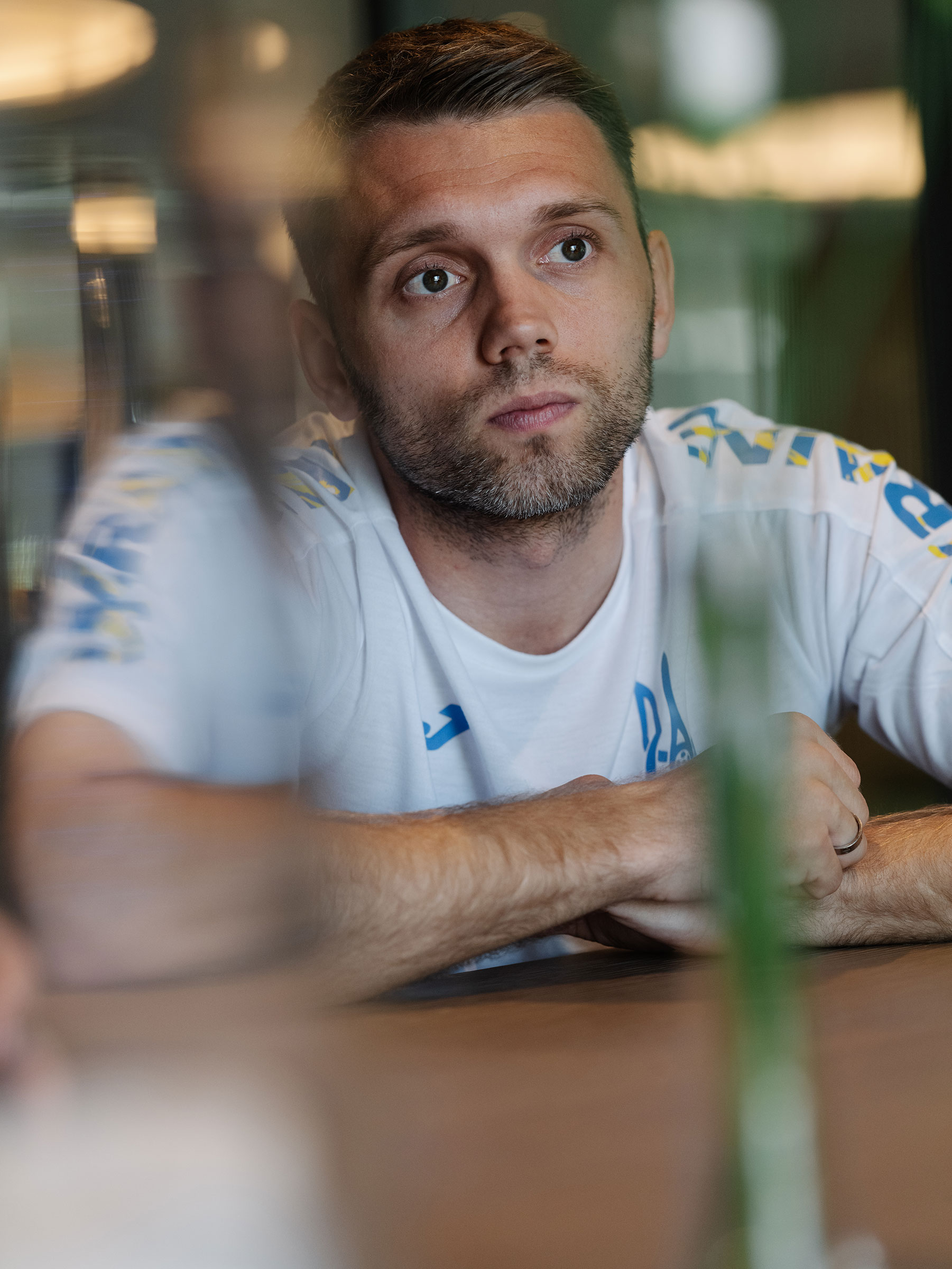
“We message all the time,” Karavayev says. “At least I know they have food and water. I tried to send them medicine, but we heard that Russians confiscate everything of value. They are near the sea and hear firing every day in the direction of Odessa and Mykolaiv.”
Few coaches have ever had to rally a team amid such emotional turmoil. The challenge for Petrakov is to harness that heartache—the worry and collective hardships—and channel it into success on the pitch. He believes hate, rather than fear or anger, is a more potent weapon. It clearly motivates him too—he speaks with fiery eyes about Russian soldiers killing children and raping women in Ukraine. “They hate us and think we are an inferior nation,” he says.
Soccer is by far Ukraine’s favorite sport and the domestic scene is dominated by two rival clubs: Shakhtar Donetsk and Dynamo Kyiv. The sport is also a proud marker of identity. “[It] is a national treasure,” says Petrakov.
Ukraine has historically punched above its weight when it comes to soccer. The Soviet team, right up until the union’s breakup in 1991, was dominated by Ukrainian players. At the 1986 World Cup in Mexico, almost three-quarters of the Soviet squad was Ukrainian and half of them played for the famed Kyiv club. Following independence, Dynamo parlayed that dominance into a string of domestic championships.
But since the turn of the century, Dynamo has faced a rising challenge from Shakhtar, owing to the financial muscle of billionaire owner Rinat Akhmetov, who made his fortune in mining and energy, now controls a vast media and real estate empire, and has been accused of corruption. (Akhmetov vehemently denies any wrongdoing). He is the owner of the Azovstal steel works in the city of Mariupol, which until recently housed hundreds of trapped civilians.
After Akhmetov purchased the club in 1996, Shakhtar adopted the tactic of signing young, talented Brazilians and then selling the most successful players—like Douglas Costa or Fernandinho—onto Europe’s biggest clubs at a vast profit. That strategy helped raise Shakhtar’s international profile and that of Ukrainian football more broadly. “The Brazilians became part of their core identity,” says Adam Pate, co-host of the Ukraine + Football podcast, who lived in Ukraine for 12 years until the war.
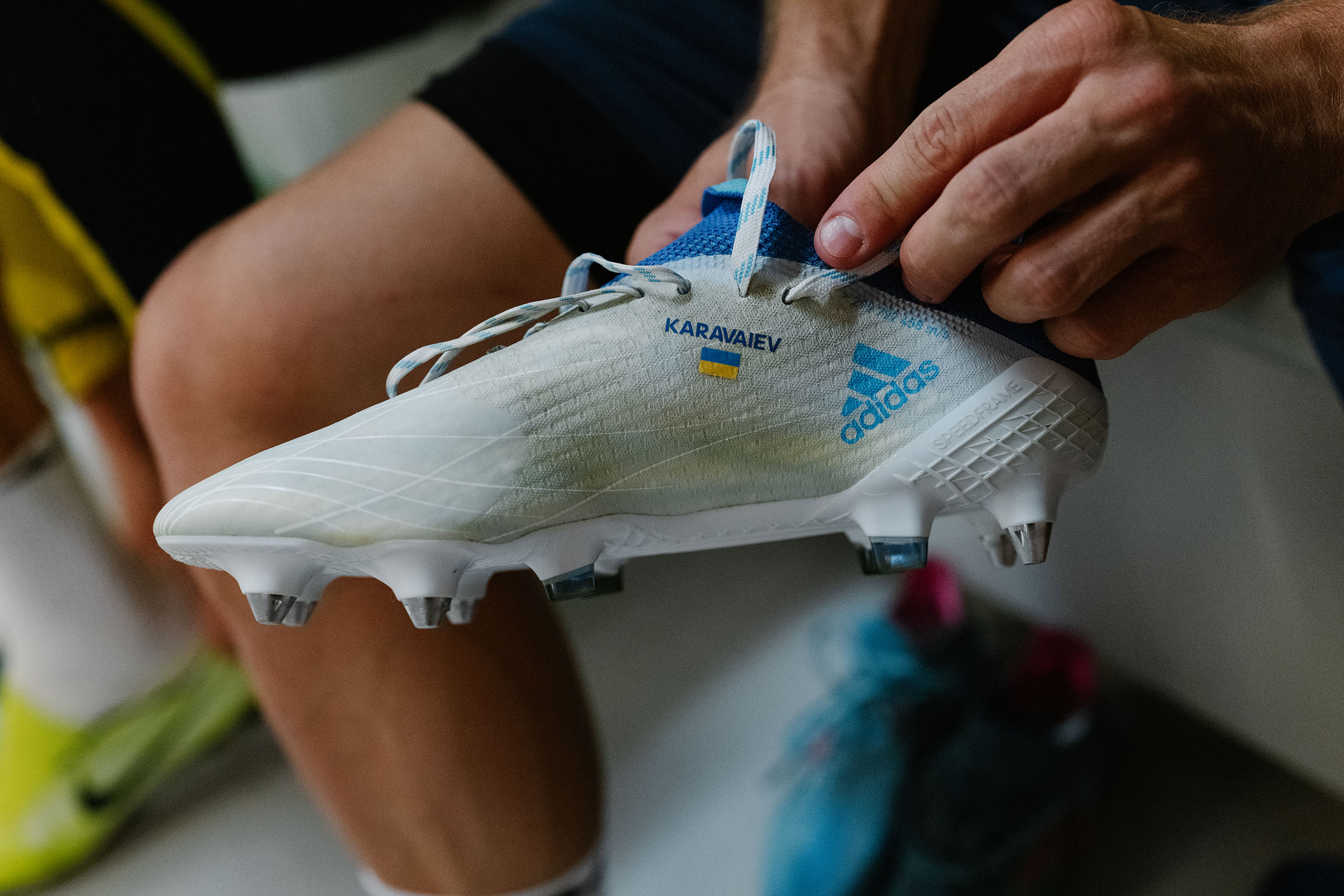
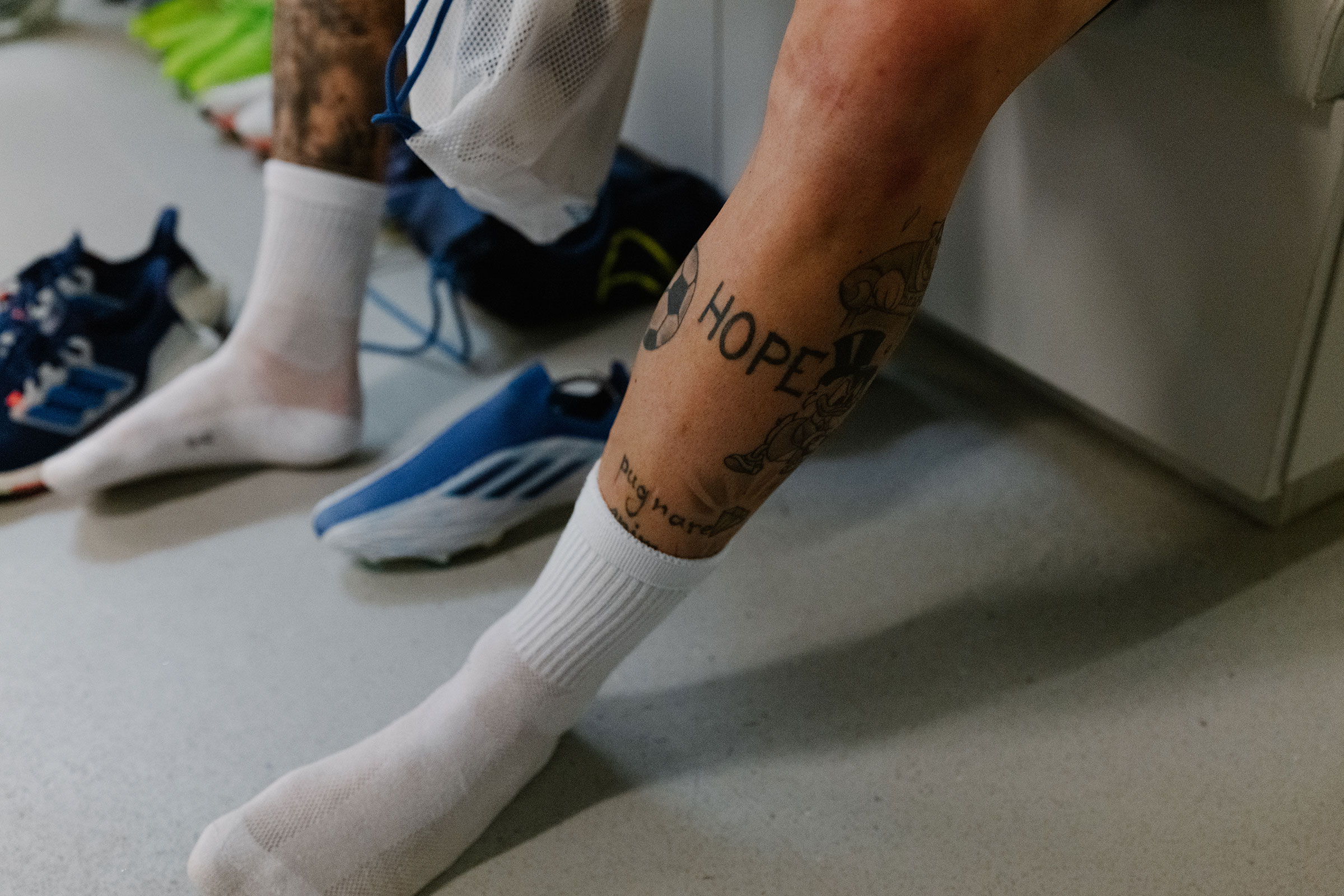
But political turmoil and conflict has been part of the story of Ukrainian soccer for years, too. In 2014, Russia annexed Crimea and Kremlin-backed rebels began seizing territory in eastern Ukraine, including Donetsk. The Shakhtar team was forced to abandon its newly built Donbass Arena and has since wandered between temporary homes in Lviv, Kharkiv, and most recently Kyiv.
That turbulence pales in comparison to the chaos wrought today. The most prominent club victim is FC Mariupol, whose new stadium and facilities have been decimated by the bloody fighting over the once-flourishing port city. Andriy Sanin, vice-president of FC Mariupol, tells TIME that their office windows have been smashed and concrete rubble covers their gym. While the extent of damage to their main stadium is unknown, since it’s still forbidden to go there, he is preparing for the worst.
Read More: In Ukraine, Fiction Has Lost Its Meaning—But Recording the Truth Is More Important Than Ever
Sanin has escaped west but not before ensuring the safety of FC Mariupol’s youth academy players. Coaches took in those whose parents were unable to collect them before Russian forces completely besieged the city on March 2. “I am proud of my colleagues; they are real heroes,” says Sanin. Still, their fate remains uncertain as many students remain separated from their families. Negotiations to send academy players overseas are ongoing.
Ukrainianian club officials who remain have taken up the baton of humanitarian work. Shakhtar has transformed its adopted 40,000-seat stadium in Lviv into a dormitory for 3,000 internally displaced people. FC Rukh Lviv and NK Veres Rivne have also turned their facilities over to house the homeless and distribute aid. “Clubs in western Ukraine, especially, have become the main organizing centers for humanitarian relief,” says Pate, who himself is currently teaching Ukrainian refugee children in Luxembourg.
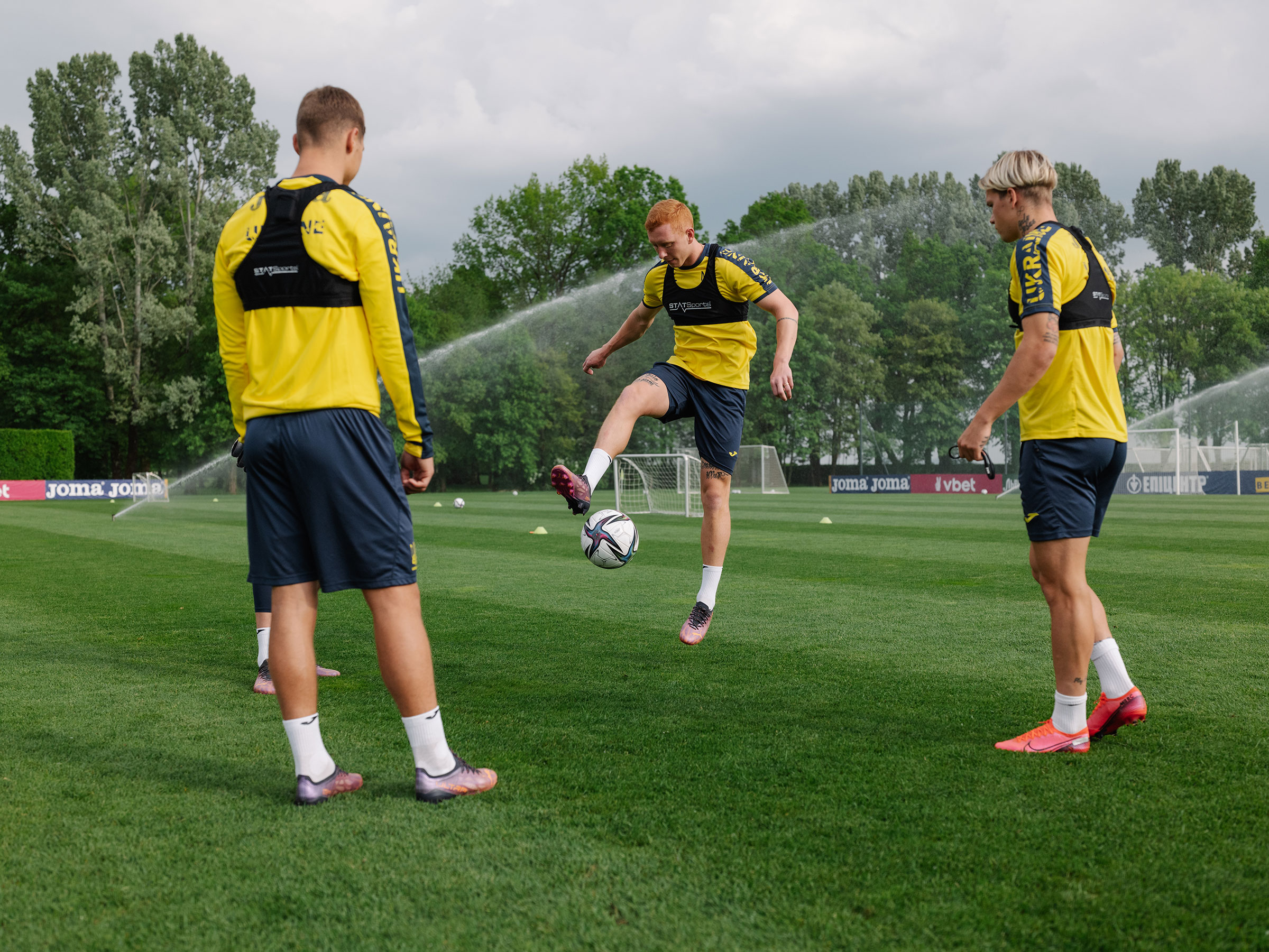
Players have also been doing their part. Despite a rule that no men of fighting age—defined as 18 to 60—are allowed to leave Ukraine or play competitive football domestically, Dynamo and Shakhtar were permitted to play charity games overseas to raise funds for the Ukrainian military.
That they were allowed to go abroad caused murmurings of discontent, especially as some top players and former Ukraine internationals have chosen to stay and take up arms, including Andriy Bogdanov, 32, and Oleksandr Aliyev, 37. Still, there is broad support for these games. “By holding charity matches, they constantly remind the world of the terrible events taking place in Ukraine,” says Sanin. “Both Shakhtar and Dynamo are now at the forefront of the information war.”
Read More: Olga Rudenko and the Kyiv Independent Are Giving the World a Window Into a Devastating War
The tactic came with approval from the top. Petrakov says he has spoken twice with Ukrainian President Volodymyr Zelensky. “He’s a very positive man, very pleasant, and a big football fan,” says Petrakov. “I voted for him. And thank God those 73% [of Ukrainians] who voted for him in elections were right.”
In contrast to Ukraine’s bid for the World Cup, Russia was ejected from the tournament following the invasion. Russians have been banned from competing in everything from the Eurovision Song Contest—which Ukraine won, not so incidentally—to the Wimbledon tennis tournament. It’s a response that has received support from many quarters but also criticism. The bans raise additional questions over why Russia’s role in Syria, Saudi Arabia’s war in Yemen and China’s persecution of its Uighur Muslim minority haven’t received similar censure.
Professor Jules Boykoff, an expert in sport and politics at Pacific University in Oregon, and who represented the U.S. in soccer, says banning athletes from competition may open the door to attempts to exclude Americans and citizens of other nations for the bellicose actions of political leaders, for instance the U.S.-led invasion of Iraq in 2003. “All this lays bare the brass-knuckle geopolitics that often sits quietly beneath sport’s surface,” he says.
Few within the Ukraine camp complain about Russia’s pariah status. “If we have to fight just to live our normal lives, they have to fight for their right to be part of world society,” says the midfielder Karavayev.
It’s a statement that will lose much of its potency without a triumph over Scotland. Ukraine’s two wins and a tie, in three recent charity games against club teams in Germany, Italy, and Croatia, have boosted the national team’s confidence. But despite this impressive form, Petrakov says these matches cannot compare with the rigors of competitive action, which Ukraine hasn’t experienced since November. Scotland’s players, by contrast, are coming to the close of their domestic seasons and should be in peak condition.
“There will be an incredible atmosphere in [Scotland’s national stadium] Hampden Park,” says Petrakov. “After missiles, rockets, and bombs, we don’t fear anything.”
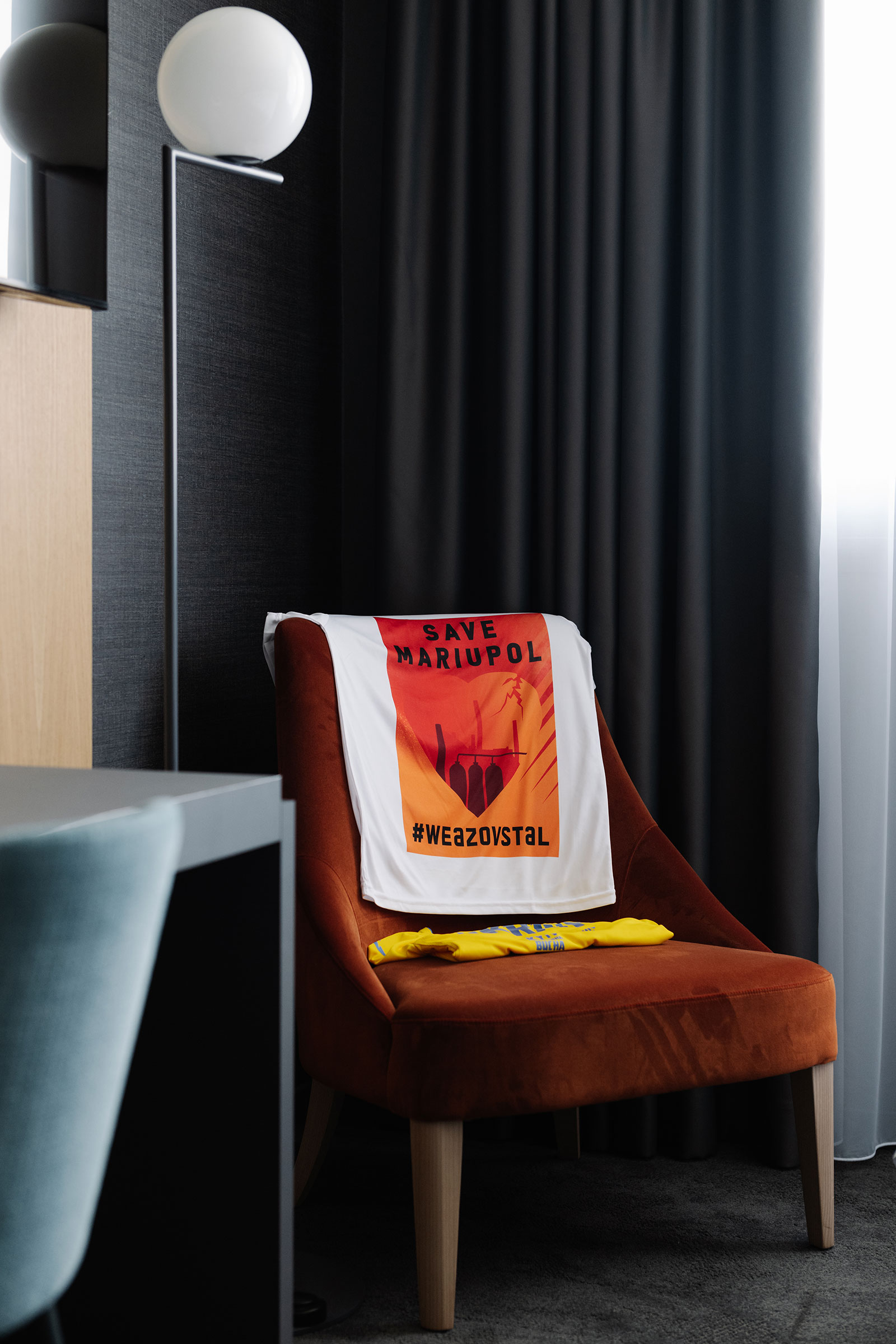
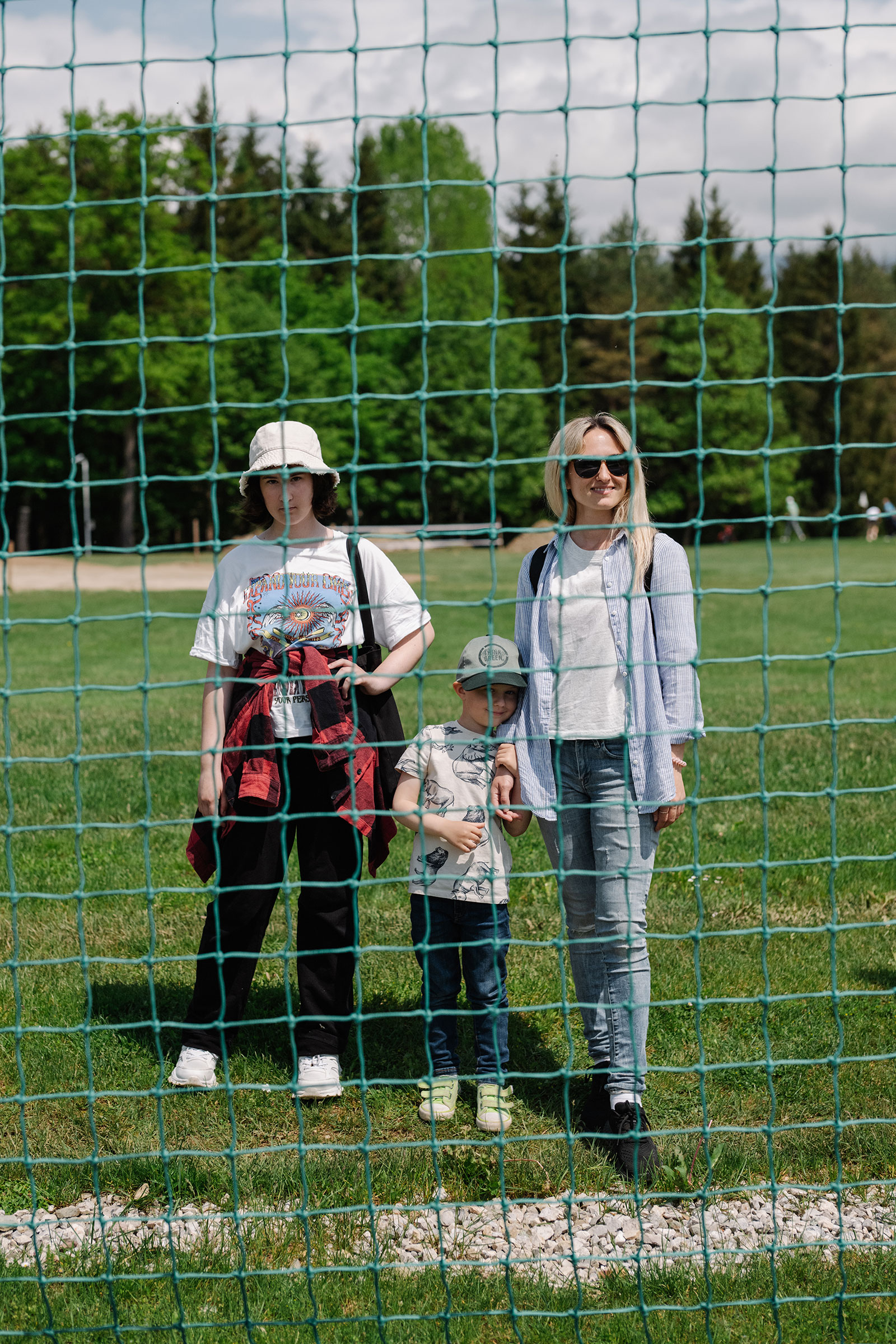
Certainly, the Ukraine team will have their nation and most neutrals in their corner. “Ukraine has strong football, famous footballers, and they should know that we care for them, are proud of them,” says Kseniia Nikitina, from the Ukrainian city of Zhytomyr, who took her daughter Alisa, 12, and son Martin, 4, to watch training in Slovenia. “And now victory is important on all fronts.”
On the battlefield, Ukrainians are hoping that billions of dollars of armaments sent from Western nations, especially the U.S., will help force the Russians back. Asked whether he has a message for Americans, Petrakov doesn’t hesitate: “A very, very big thank you,” he says. “Growing up and living in the Soviet Union, I never imagined that people that I thought were our brothers, whom I slept and ate with during my younger years, could kill us. And on the other hand, Soviet propaganda taught us that Germans and Americans were our enemies. So we are very, very grateful for your support.”
How grateful, exactly? Were Ukraine to qualify for the World Cup, it would find itself in Group B with England, Iran, and the U.S., all vying for spots in the round-of-16 knockout stage. Is there any chance Petrakov could go easy on his American opponents if, say, the Ukrainians needed only a tie to progress to the next stage? The famously no-nonsense coach sucks his teeth. “If you come to me, we will find a solution,” he says with a grin.
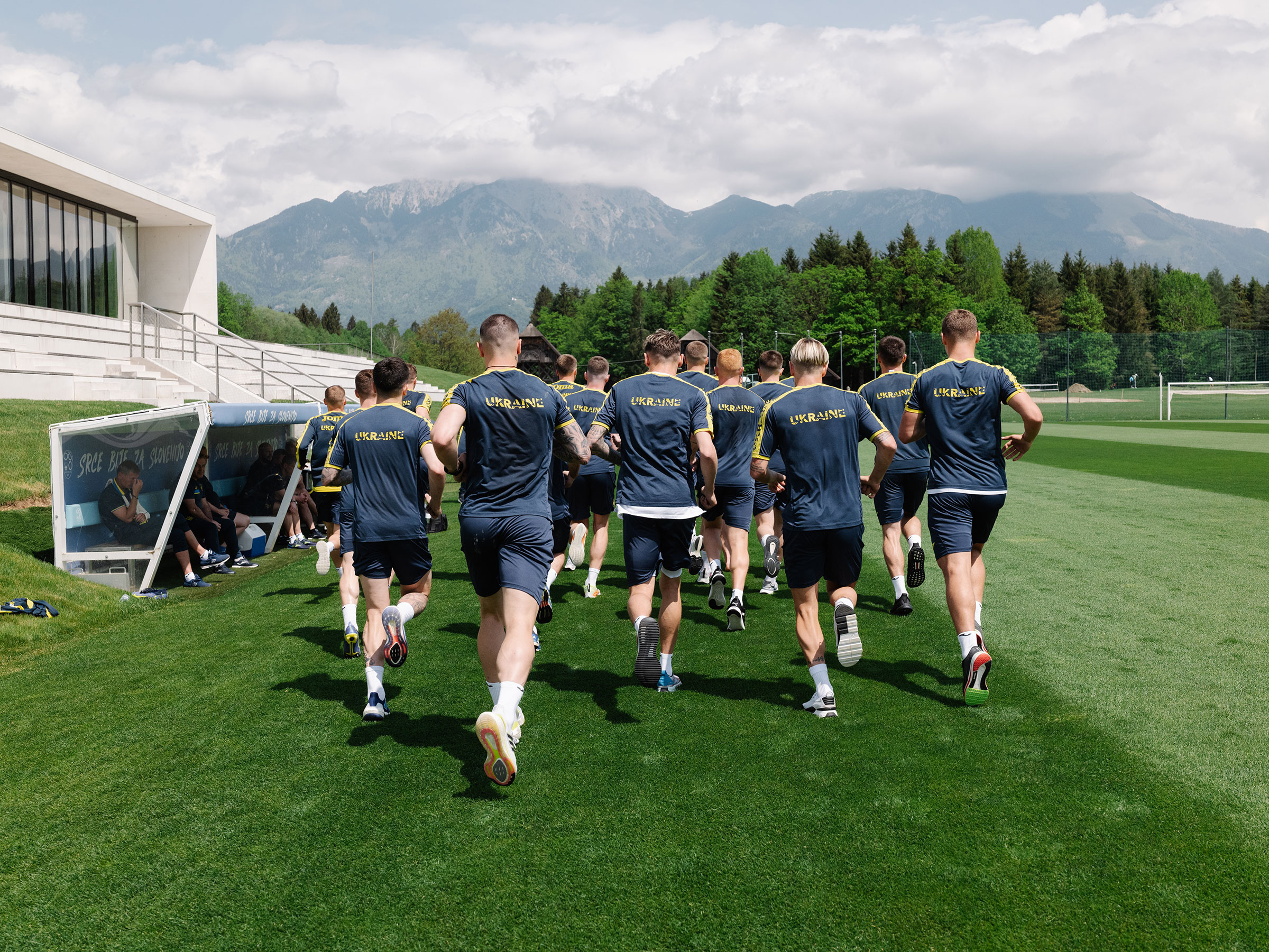
More Must-Reads From TIME
- The 100 Most Influential People of 2024
- The Revolution of Yulia Navalnaya
- 6 Compliments That Land Every Time
- What's the Deal With the Bitcoin Halving?
- If You're Dating Right Now , You're Brave: Column
- The AI That Could Heal a Divided Internet
- Fallout Is a Brilliant Model for the Future of Video Game Adaptations
- Want Weekly Recs on What to Watch, Read, and More? Sign Up for Worth Your Time
Write to Charlie Campbell / Ljubljana, Slovenia at charlie.campbell@time.com
